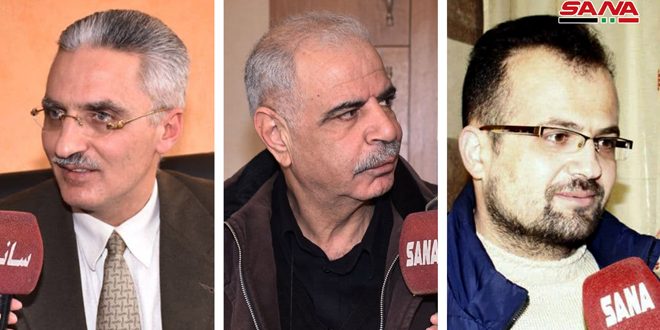Law No. 8 is a banking vision that provides poor families with adequate income, according to academics
Law No. 8 of 2021 for microfinance banks constitutes a radical transformation in the sector of small and micro-enterprises in terms of sponsoring them since the inception of their idea until their establishment of these projects with the necessary financing and encouraging benefits, whether there are guarantees or not. It also aimed at training those wishing to establish projects.
The new law would be an attractive factor for the target group represented by the limited and no income people in order to start their own project and improve their financial conditions. It’s noteworthy that the law granted microfinance banks a wide range of services, powers, exceptions and exemptions with the aim of achieving sustainable development.
Law No. 8, which represents an unprecedented banking vision, will contribute to moving the investment market and attracting Syrian and foreign capital from abroad, according to what University Professor Mahmoud Abd al-Salam, a researcher in the field of business administration, confirms in a statement to SANA. He also noted that the new law’s interest in small and micro enterprises will secure adequate income for the poor families who in turn will be productive and self-sufficient families.
Dr. Abd al-Salam states that Law No. 8 created a new and developed legal environment capable of protecting the money and rights of investors, whether the investors are Syrians or foreigners. He stressed that the banks that will be established are legally exempt from profit and income taxes and fees for five consecutive years regardless of the volume of trading of their shares. Establishing investment portfolios will be facilitated and expatriates will be allowed to participate in establishing these banks as limited joint stock companies, he pointed out.
Dr. Walaa Zreqa, Professor at the Faculty of Economics at the University of Tartous expected that nearly 70 percent of the segments of society would benefit from micro finance loans, especially since public bank loans need many guarantees. But he underlined the importance of supervision and control over the work of micro financing banks to prevent double loan drawdown.
A Professor at the Faculty of Economics in Daraa Governorate, Ali Al-Masalamah, stressed that financing and good management are the basis for the success of any project. He indicated that the law on microfinance banks contributes to combating unemployment by ensuring new job opportunities, raising the level of income and domestic product, achieving abundance in local products and securing an alternative to imports.
The Dean of the Faculty of Economics at the University of Aleppo, Dr. Ghassan Saket, clarified that the law would help a large group of those affected by the terrorist and economic war on Syria, which led to the inconsistency of their income with the requirements of living. He warned of the danger of stopping many trades, professions and business owners as a result of their lack of financing on easy terms.
Dr. Saeed Al-Amoum, Deputy Dean of the Faculty of Economics at Aleppo University, indicated that the new banks will play a role in restarting the workshops as well as the rural agricultural projects that were suspended due to the war, but the procedures should be simplified to ensure that owners have access to financing.
Inas Abdulkareem

